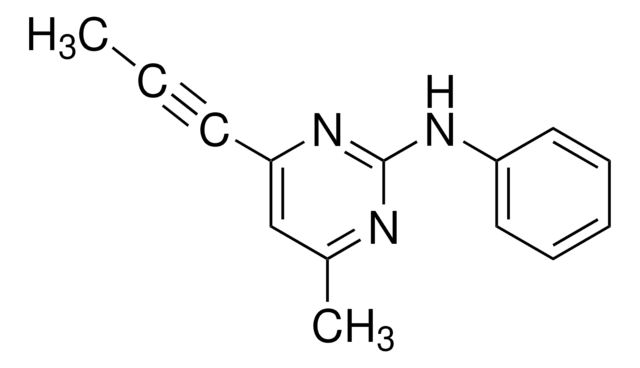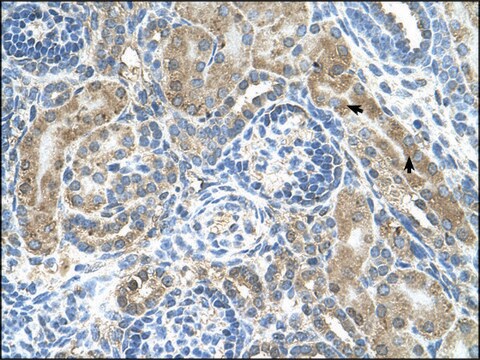BCR052
Benzo[ghi]perylene
BCR®, certified reference material
Synonym(s):
1,12-Benzoperylene
About This Item
Recommended Products
grade
certified reference material
Agency
BCR®
Assay
>99.7%
manufacturer/tradename
JRC
technique(s)
HPLC: suitable
gas chromatography (GC): suitable
bp
>500 °C (lit.)
mp
277-279 °C (lit.)
format
neat
storage temp.
2-8°C
SMILES string
c1cc2ccc3ccc4ccc5cccc6c(c1)c2c3c4c56
InChI
1S/C22H12/c1-3-13-7-9-15-11-12-16-10-8-14-4-2-6-18-17(5-1)19(13)21(15)22(16)20(14)18/h1-12H
InChI key
GYFAGKUZYNFMBN-UHFFFAOYSA-N
Looking for similar products? Visit Product Comparison Guide
Analysis Note
BCR052
Legal Information
Signal Word
Warning
Hazard Statements
Precautionary Statements
Hazard Classifications
Aquatic Acute 1 - Aquatic Chronic 1
Storage Class Code
11 - Combustible Solids
WGK
WGK 2
Flash Point(F)
Not applicable
Flash Point(C)
Not applicable
Regulatory Listings
Regulatory Listings are mainly provided for chemical products. Only limited information can be provided here for non-chemical products. No entry means none of the components are listed. It is the user’s obligation to ensure the safe and legal use of the product.
JAN Code
BCR052-100MG:
Choose from one of the most recent versions:
Certificates of Analysis (COA)
It looks like we've run into a problem, but you can still download Certificates of Analysis from our Documents section.
If you need assistance, please contact Customer Support.
Already Own This Product?
Find documentation for the products that you have recently purchased in the Document Library.
Our team of scientists has experience in all areas of research including Life Science, Material Science, Chemical Synthesis, Chromatography, Analytical and many others.
Contact Technical Service![Benzo[ghi]perylene analytical standard](/deepweb/assets/sigmaaldrich/product/structures/154/740/c50ff1be-dfb4-4159-a98c-9cecf9206ad3/640/c50ff1be-dfb4-4159-a98c-9cecf9206ad3.png)



![Benzo[k]fluoranthene for fluorescence, ≥99%](/deepweb/assets/sigmaaldrich/product/structures/277/320/3e615f9f-3887-40f6-b176-bc1eb9b4832c/640/3e615f9f-3887-40f6-b176-bc1eb9b4832c.png)


![Benzo[a]fluoranthene BCR®, certified reference material](/deepweb/assets/sigmaaldrich/product/structures/224/253/4a3e1b07-4cae-47e1-8244-40da533fc42e/640/4a3e1b07-4cae-47e1-8244-40da533fc42e.png)
